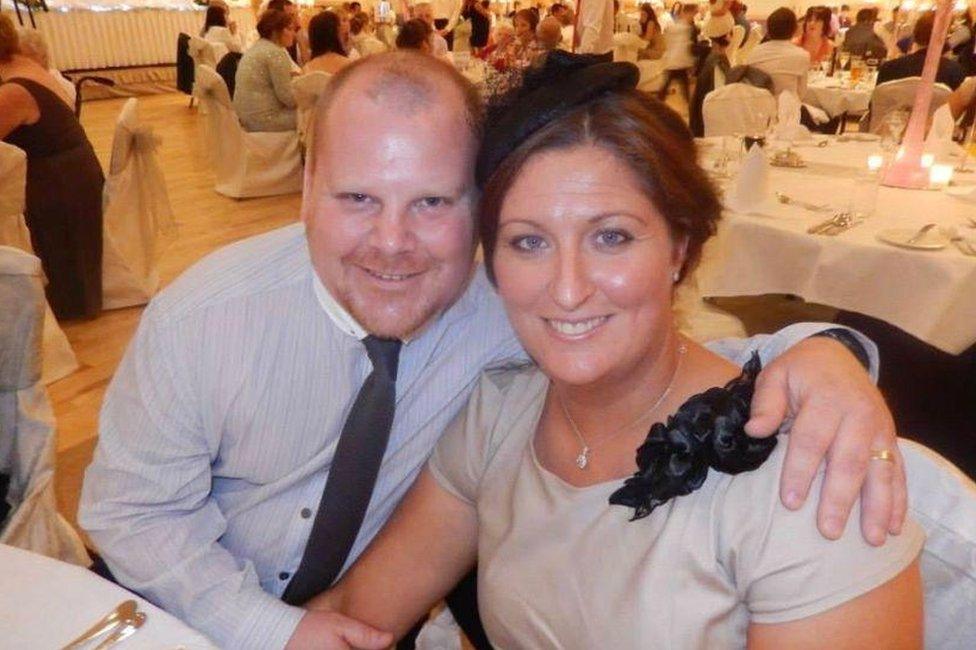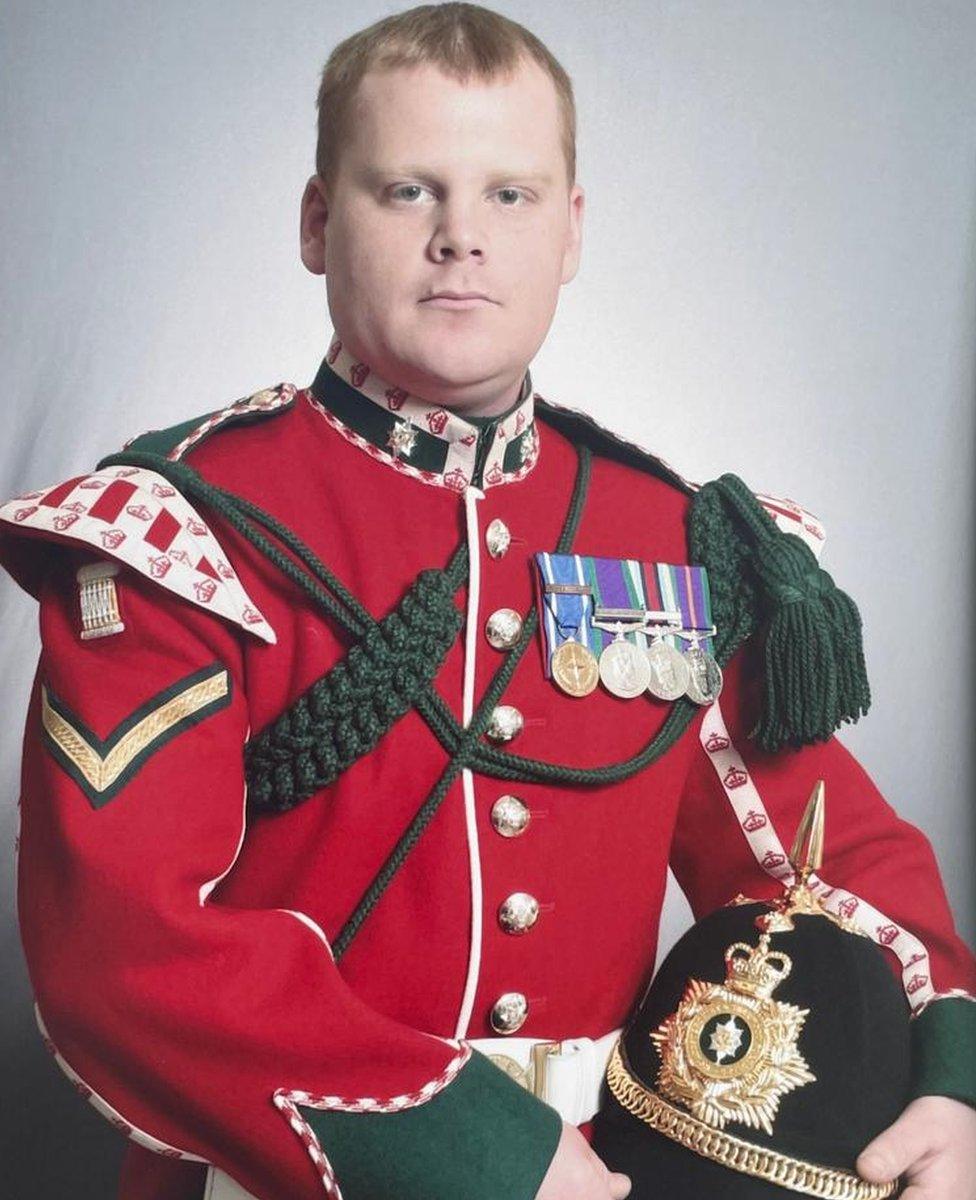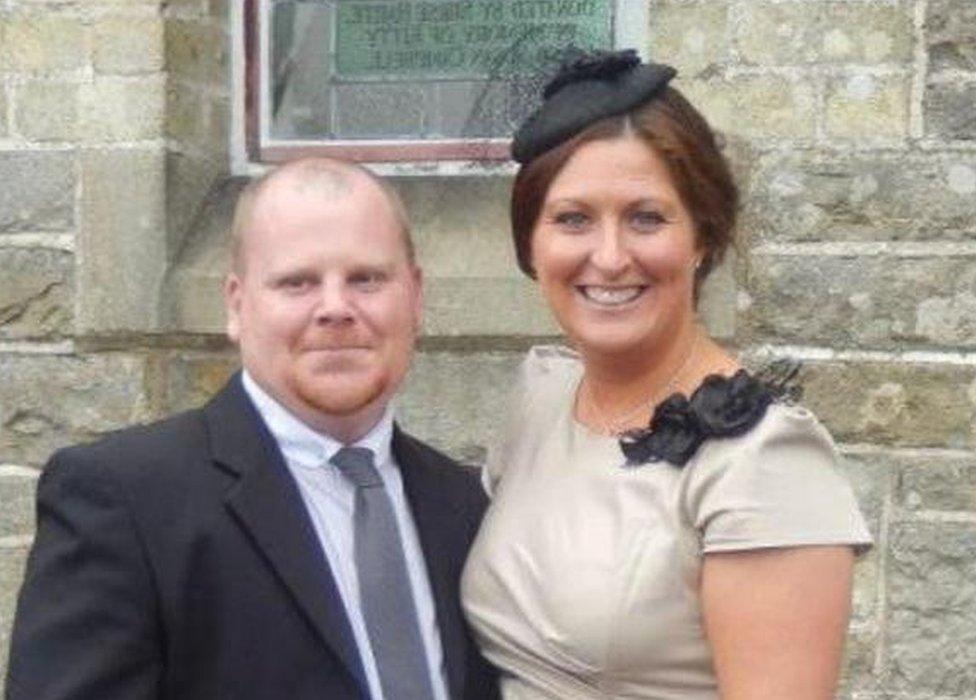Army 'failed' soldier with PTSD who killed himself
- Published

Teresa Cole said her husband's death could have been avoided if he had been diagnosed and treated correctly
A coroner has criticised the Army for not diagnosing a soldier who later killed himself with post-traumatic stress disorder (PTSD).
An inquest into the death of Jonny Cole heard he experienced several traumatic events while serving in Afghanistan, including seeing colleagues die.
He attempted to take his own life numerous times, including twice while he was still serving.
He eventually killed himself in Derbyshire on 9 August 2018.
This was after he had been medically discharged in 2013 for tinnitus, but Assistant Coroner Sophie Cartwright said his mental health problems should have been acknowledged.
"The deceased left the Army in 2013 without a diagnosis of PTSD," the coroner said.
"This was a failure, and a diagnosis of PTSD was appropriate at that time."

Jonny Cole served with 2 Rifles, based at Ballykinler in County Down
Mr Cole's traumatic experiences also included having to collect the remains of his dead colleagues, and being injured himself in a rocket-propelled grenade attack.
The coroner said the therapy sessions he was given following these experiences were "insufficient".
The inquest heard he received eight eye movement desensitisation and reprocessing (EMDR) sessions, but a trauma expert told the inquest he should have received more for multiple traumatic experiences.
'Risk of future deaths'
Miss Cartwright said she would be writing two Reports to Prevent Future Deaths, external, with one addressed to the Ministry of Defence, and the other addressed to Nottinghamshire Healthcare NHS Foundation Trust.
She said the report to the MoD would relate to the number of psychologists and psychiatrists available to help soldiers.
"I heard evidence there is still a shortage, and that raises a risk of future deaths," she said.
The report to the NHS trust will relate to the treatment he was given for his mental health problems, and how this was investigated following his death.

Teresa Cole said she was grateful to the coroner
The inquest heard Mr Cole was injured in the rocket-propelled grenade attack in 2009, and first tried to kill himself in January 2010.
He had been living in Northern Ireland with his wife Teresa Cole and their two children.
However, the marriage eventually broke down, and at the time of his death he was living in Derbyshire with his girlfriend and their son.
He went missing from their home in Ironville on 7 August 2018, and was found dead two days later in Codnor Park.
Ms Cole, who attended the inquest every day, said she wanted to thank the coroner.
"I am grateful to the coroner and her staff for the incredibly thorough investigation she has made, which has exposed the failings of the MoD and the NHS in this case," she said.
"The coroner has found that Jonny's death may have been avoided if he had received the correct diagnosis and treatment after his tour of Afghanistan."
'I hope he's proud'
Ms Cole said she also wanted to thank her legal team and barrister "for all their help and support and for the outcome that was received today".
"I hope there's other people out there who can do the same and stand up for themselves and realise that nobody should die in vain," she said.
"I hope he's up there looking down on me and he's proud of me today for what I've done for me and my kids."

Follow BBC East Midlands on Facebook, external, Twitter, external, or Instagram, external. Send your story ideas to eastmidsnews@bbc.co.uk, external.